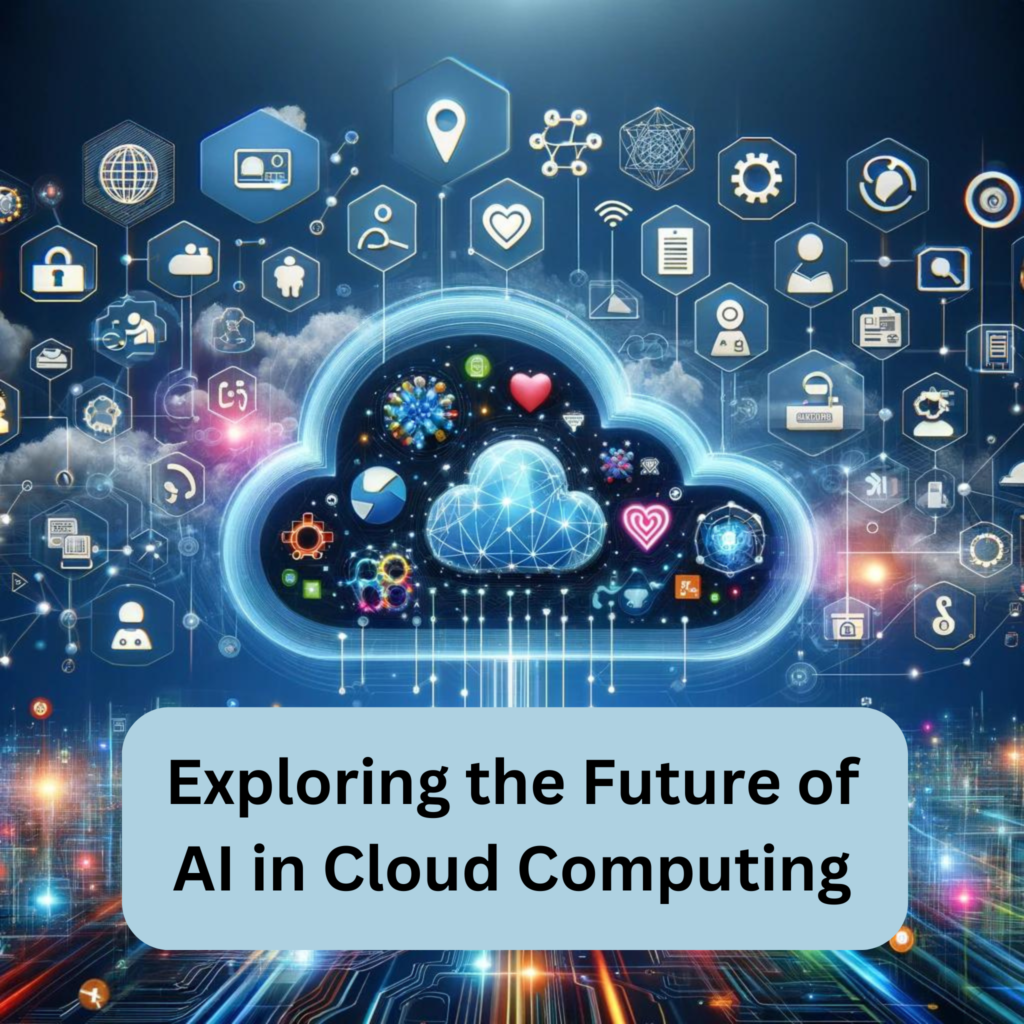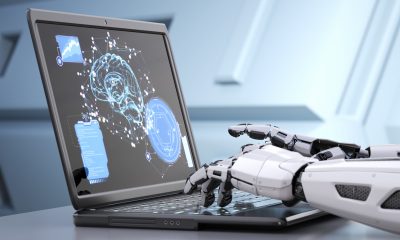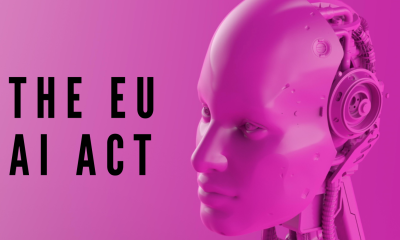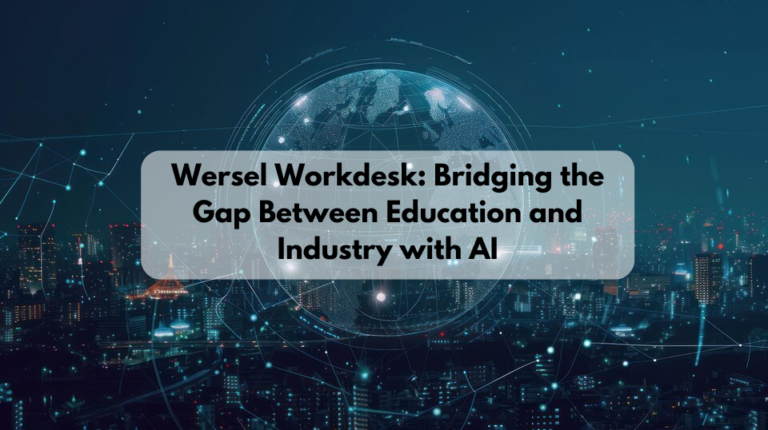

The fusion of Artificial Intelligence (AI) and cloud computing is a monumental development that is reshaping the technological landscape. As these two powerful technologies converge, they are creating new opportunities and challenges for businesses, developers, and consumers alike. This blog post delves into the current state of AI in cloud computing, explores how this synergy is driving innovation, and examines what the future holds for this dynamic duo.
The Evolution of AI and Cloud Computing
Cloud computing has been a game-changer for businesses by offering scalable, on-demand computing resources. It allows organizations to leverage infrastructure, platforms, and software as services (IaaS, PaaS, SaaS) without the need to maintain physical servers. AI, on the other hand, has advanced from a niche field into a mainstream technology, driving significant innovations across various industries.
The convergence of AI and cloud computing is not merely a trend but a natural progression. AI requires vast amounts of data and computational power to function effectively, which the cloud provides seamlessly. The cloud’s scalability and flexibility enable AI to process and analyze large datasets in real-time, making it more accessible and affordable for businesses of all sizes.
The Current State of AI in the Cloud
As of 2024, AI has become an integral part of cloud computing services offered by major providers like Amazon Web Services (AWS), Microsoft Azure, and Google Cloud Platform (GCP). These platforms offer a range of AI-powered services, including machine learning (ML), natural language processing (NLP), and computer vision. These services are designed to help businesses automate processes, gain insights from data, and enhance customer experiences.
For instance, AWS’s AI services, such as Amazon SageMaker, enable developers to build, train, and deploy ML models at scale. Microsoft Azure’s AI offerings, including Azure Cognitive Services, provide APIs for vision, speech, language, and decision-making capabilities. Google Cloud’s AI solutions focus on simplifying the process of developing and deploying AI models with tools like AutoML and TensorFlow.
These cloud-based AI services are democratizing access to advanced technologies, allowing even small and medium-sized enterprises (SMEs) to harness the power of AI without investing heavily in infrastructure. This accessibility is fostering innovation across industries, from healthcare and finance to retail and manufacturing.
The Impact of AI-Cloud Convergence on Industries
The combination of AI and cloud computing is driving transformative changes across various sectors. Here’s a look at some key industries benefiting from this convergence:
Healthcare: AI-powered cloud solutions are revolutionizing healthcare by improving diagnostics, personalizing treatment plans, and optimizing operations. For example, AI algorithms can analyze medical images to detect diseases early, while cloud platforms store and process vast amounts of patient data securely. This integration enables healthcare providers to deliver more accurate and timely care.
Finance: In the financial sector, AI and cloud computing are enhancing risk management, fraud detection, and customer service. Banks and financial institutions are using AI to analyze transaction data and identify suspicious activities in real-time. Cloud-based AI tools are also being used to provide personalized financial advice to customers, improving the overall user experience.
Retail: Retailers are leveraging AI-driven cloud solutions to optimize supply chain management, enhance customer engagement, and personalize marketing strategies. AI algorithms analyze customer data to predict shopping behaviors, enabling retailers to offer personalized recommendations and promotions. Cloud computing ensures that these insights are processed quickly and efficiently, helping retailers stay competitive in a fast-paced market.
Manufacturing: In manufacturing, AI and cloud computing are being used to improve operational efficiency, predict equipment failures, and enhance product quality. AI-powered predictive maintenance solutions analyze sensor data from machinery to detect potential issues before they lead to costly downtime. Cloud platforms enable manufacturers to monitor and manage their operations remotely, ensuring continuous production.
The Future of AI in Cloud Computing
As AI and cloud computing continue to evolve, their convergence is expected to drive even more significant innovations. Here are some trends to watch in the coming years:
Edge AI: The rise of edge computing, which involves processing data closer to where it is generated, is set to complement cloud AI. Edge AI will enable real-time data processing and decision-making in environments where latency is critical, such as autonomous vehicles and industrial IoT applications. The cloud will continue to play a crucial role by providing centralized processing and storage for more complex AI tasks.
AI-Powered DevOps: The integration of AI into DevOps practices, often referred to as AIOps, is expected to gain traction. AIOps uses AI to automate and optimize IT operations, such as monitoring, incident response, and performance management. This trend will lead to more efficient and resilient cloud infrastructures, reducing downtime and improving service delivery.
AI-Driven Security: As cyber threats become more sophisticated, AI-driven security solutions will be critical in protecting cloud environments. AI can analyze vast amounts of data to detect and respond to security threats in real-time, offering a proactive approach to cybersecurity. Cloud providers are likely to invest heavily in AI-powered security tools to safeguard their platforms and customers.
Ethical AI and Governance: As AI becomes more prevalent, ethical considerations and governance will become increasingly important. Cloud providers will need to ensure that their AI services are transparent, fair, and accountable. This will involve developing frameworks for ethical AI usage, addressing biases in AI algorithms, and ensuring data privacy and security.
AI as a Service (AIaaS): The concept of AI as a Service, where AI capabilities are delivered as a cloud-based service, is expected to grow. AIaaS will allow businesses to access and deploy AI tools on-demand, without the need for extensive in-house expertise. This model will further democratize AI, making it accessible to a broader range of industries and use cases.
Conclusion
The convergence of AI and cloud computing is ushering in a new era of technological innovation. As these technologies continue to evolve, they will drive significant changes across industries, offering new opportunities for businesses to enhance their operations and customer experiences. The future of AI in the cloud looks promising, with trends like edge AI, AI-powered DevOps, and AI-driven security set to shape the next wave of innovation. Businesses that embrace these technologies will be well-positioned to thrive in an increasingly digital world.
Best Cloud Computing Courses Online | Best Cloud Computing Courses | Top Cloud Computing Courses Online | Cloud Computing Online Training Courses | Cloud Computing Courses Online | Best Artificial Intelligence Courses Online with Certificates | Best AI and Machine Learning Courses Online | Best Data Science Courses Online | Best Online Data Science Course with Training | Top Artificial Intelligence (AI) Courses Online | Best of Machine Learning & AI | Data Science Course Online | Best Online Data Science Courses & Certificates





